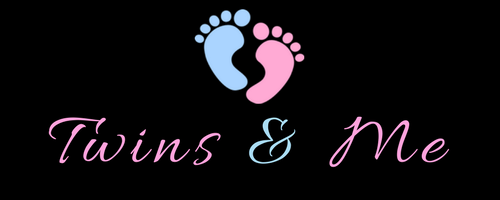Hi everyone! In my last article, we saw the composition of breastmilk and its significance. In this post, I would like to point out some common myths about breastfeeding that you should stop believing.
Myths about Breastfeeding & the Actual Facts
Breastfeeding is the best gift nature has given to us. Breastmilk itself is a wonderful medicine which protects and nourishes the newborn.
But all through these years, there are many fallacies developed around breastfeeding. These folklores were passed on through generations, that people have started believing them blindly without knowing the actual facts behind. Many new ideas are also being propagated these days which portray breastfeeding to be dangerous and risky.
So I believe, this is high time we identify the myths about breastfeeding and discern the real facts. Here we go.
Myth 1 – First Milk (Colostrum) should not be given to Newborn
Fact: Colostrum helps protect the child from diseases, as it aids in the development of the newborn’s immune system. It has a cathartic effect in that it prompts the excretion of excess bilirubin from the newborn. Thereby, it decreases the chances of jaundice in the newborn.
Colostrum is rich in several essential vitamins (such as vitamin K and A), as well as antibodies. All these help the newborn’s body to fight off commonly occurring infections. No artificial feed can substitute the first milk.
With all of its natural benefits, Colostrum should certainly be fed to the child after birth.
Myth 2 – The Mother should not Breastfeed if suffering from an Infection
Fact: If the mother has an infection, the baby, like any other family member, would normally contract the infection through close contact with the mother. While breastfeeding, in itself, is unlikely to pass the infection, it will pass antibodies to the baby that will help the baby fight the infection and get better faster.
That being said, breastfeeding should not be stopped if the mother has an infection. However, there are certain infections, like HIV, TB, human T-cell lymphotropic virus type I or II, and untreated brucellosis, which can be dangerous for the newborn, and breastfeeding should be stopped when such infections are present.
Not all infection will be transmitted through breast milk. When the mother has an infection, consult with your medical practitioner before stopping to breastfeed your baby.
Myth 3 – Infants need Water in addition to being Breastfed
Fact: Breast milk is rich in water, so breastfed babies do not need additional water. Feeding on water and other fluid supplements decrease the newborn baby’s interest in breast milk. The decreased demand for milk from the baby results in the decreased secretion of oxytocin and prolactin. This ultimately decreases milk production in the lactating mother.
Babies under six months can stay hydrated with exclusive breastfeeding. There is no need for water.
Myth 4 – A Woman who becomes Pregnant must stop Breastfeeding
Fact: Breastfeeding does not have any effect on the pregnancy or the quality of breast milk. So it can be continued during pregnancy and after the birth of the newborn. According to the American Academy of Pediatrics (AAP), a child needs to breastfeed for 1 year or longer, as desired by mother and infant. The WHO recommends six months of exclusive breastfeeding for newborns, based on a trial comparing 4- and 6-month durations.
You can continue breastfeeding during and post pregnancy. Tandem feeding can be done for your elder child and the newborn.
Myth 5 – Breastfeeding changes the Shape and Size of the Breasts
Fact: Partly true! Hormonal changes during pregnancy alter the look and feel of the breasts. When you first begin breastfeeding, your breasts may become swollen with milk and grow to be larger in size. However, a regular, timely feeding for the appropriate duration will diminish the size of your breast. Depending on hereditary factors, breast size may then remain larger or return to their original size.
Breastfeeding can change the size and shape of the breast. But the change will not be persistent for everyone.
Myth 6 – Nipples should be washed each time before feeding the Baby
Fact: Washing the nipple makes the area dry by removing all the naturally protective oils. Use of soap should be especially avoided around the nipple. Rubbing hindmilk (the milk that comes at the end of the breastfeed and is rich in fats) on the breast after feeding can keep the nipple moist and hydrated, as well as prevent soreness.
Washing the nipples before each feed is unnecessary unless you think there is a need to do it.
Myth 7 – A baby needs to be given Sugar-Water or Honey before the first Breastfeeding
Fact: These substances have traditionally been given before the baby is first breastfed. However, this practice does more harm than good in newborns, as they predispose the baby to infection. Especially honey should never be given for infants under one year of age, as it can develop a condition called Botulism.
The newborn fed on breast milk from the start has less chance of developing a Respiratory Tract Infection, Sudden Infant Death Syndrome (SIDS), GIT infection, Necrotizing Enterocolitis, Obesity, Diabetes, childhood Leukemia, and Lymphoma, Celiac disease, or Inflammatory Bowel Disease.
Once your baby is born start breastfeeding directly. There is no need to give any other substance.
Myth 8 – A neonate cries predominantly because of inadequate Breast Milk
Fact: Not true! Excessive crying doesn’t mean inadequate milk, alone. There are several reasons for a baby’s excessive crying. Fever, ear infection, abdominal pain, general discomfort, and simply wanting to be picked up are all reasons for which a baby could be crying. However, it is recommended to see a pediatrician if crying is excessive to a point of concern.
Insufficient breastmilk is not the only reason why your NICU baby is crying. You should explore other options too.
Myth 9 – No Drug is safe to take while Breastfeeding
Fact: There is a limited number of medications that are contraindicated during breastfeeding, for they could potentially pass through the milk to the newborn, but the rest can be taken safely.
According to the regulatory requirements by the Central Drugs Standard Control Organization (CDSCO) for inserts in medication packaging, they should possess the information regarding the safety of using the medication during pregnancy. This will help to prevent any drug-related problems while breastfeeding the baby.
If the mother has an illness, consult with your medical practitioner. He / She will prescribe the required drugs which are safe to take during lactation.
Myth 10 – The amount of Milk secretion depends on the Size of the Breast
Fact: Milk production in the lactating mother depends on the demand of the milk from the baby, rather than the size of the breast. As I said earlier, an infant sucking at the breast increases the secretion of oxytocin and prolactin in the mother. This ultimately results in an increased secretion of milk.
Milk production is dependent on the number of secretory glands in the breast, which is basically the same in all breasts. Size is only determined by fatty and connective tissues, factors irrelevant to milk production and breastfeeding.
There is no inter-connection between breast size and milk production.
I think by now you should be crystal clear that all these theories are not true and you should seize to believe them. The sad part is, this list is endless provoking many new mothers to avoid or discontinue breastfeeding.
So If you have any doubt or need clarity on information that you have heard about breastfeeding, feel free to ask them in the comments section. Let’s find out whether it is true or simply a myth.
Not everyone is aware of these myths about breastfeeding. If you can share this article with your friends and family you will definitely encourage another mom to happily breastfeed her baby.
Pin this for Later

Image Credits: Main image by jancamilleri Flickr via Compfight cc


